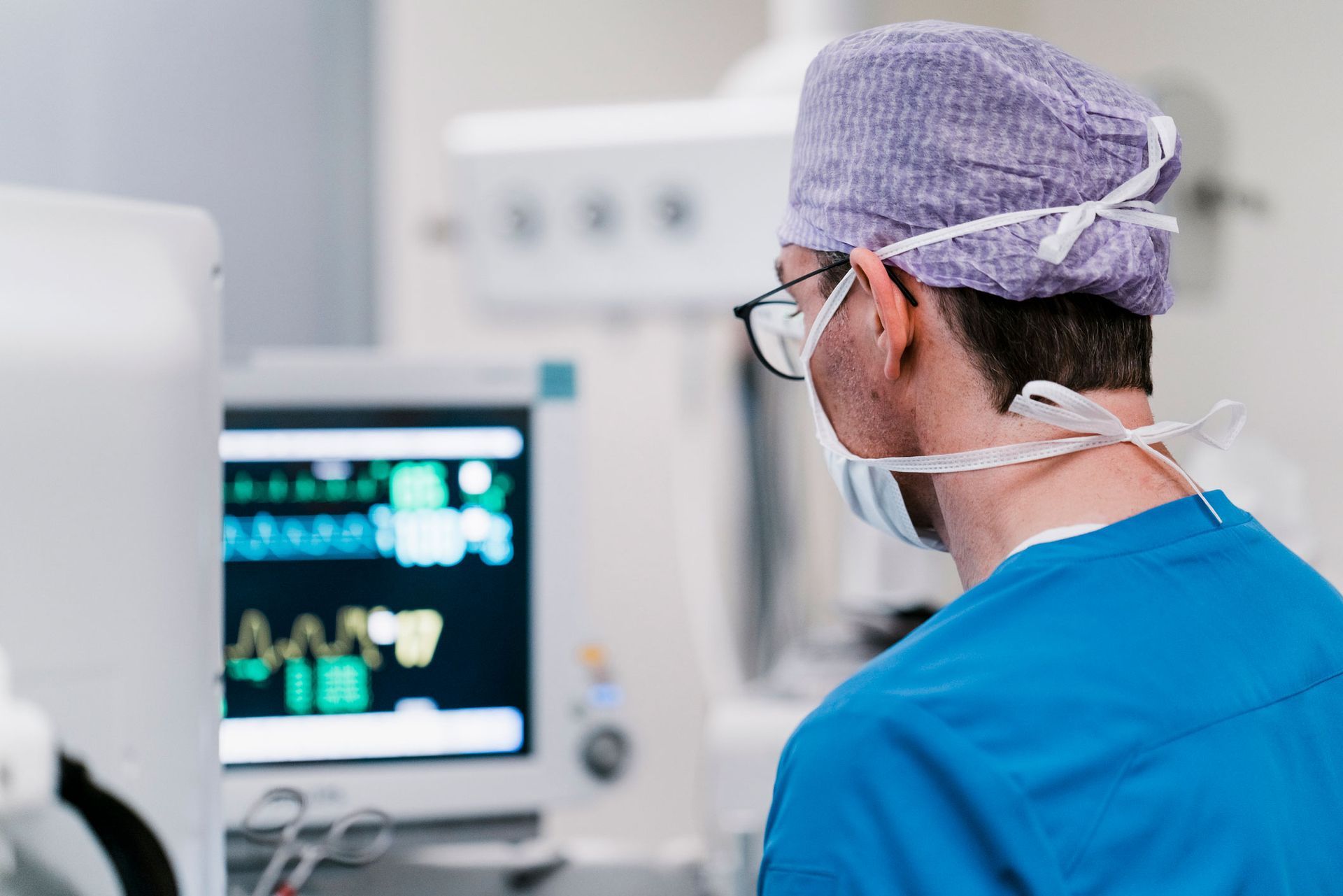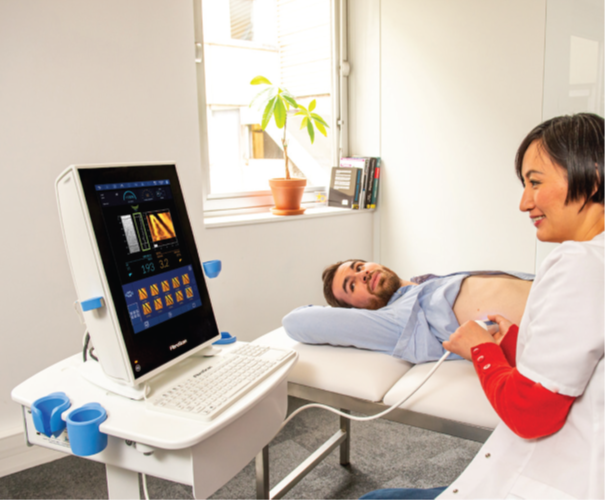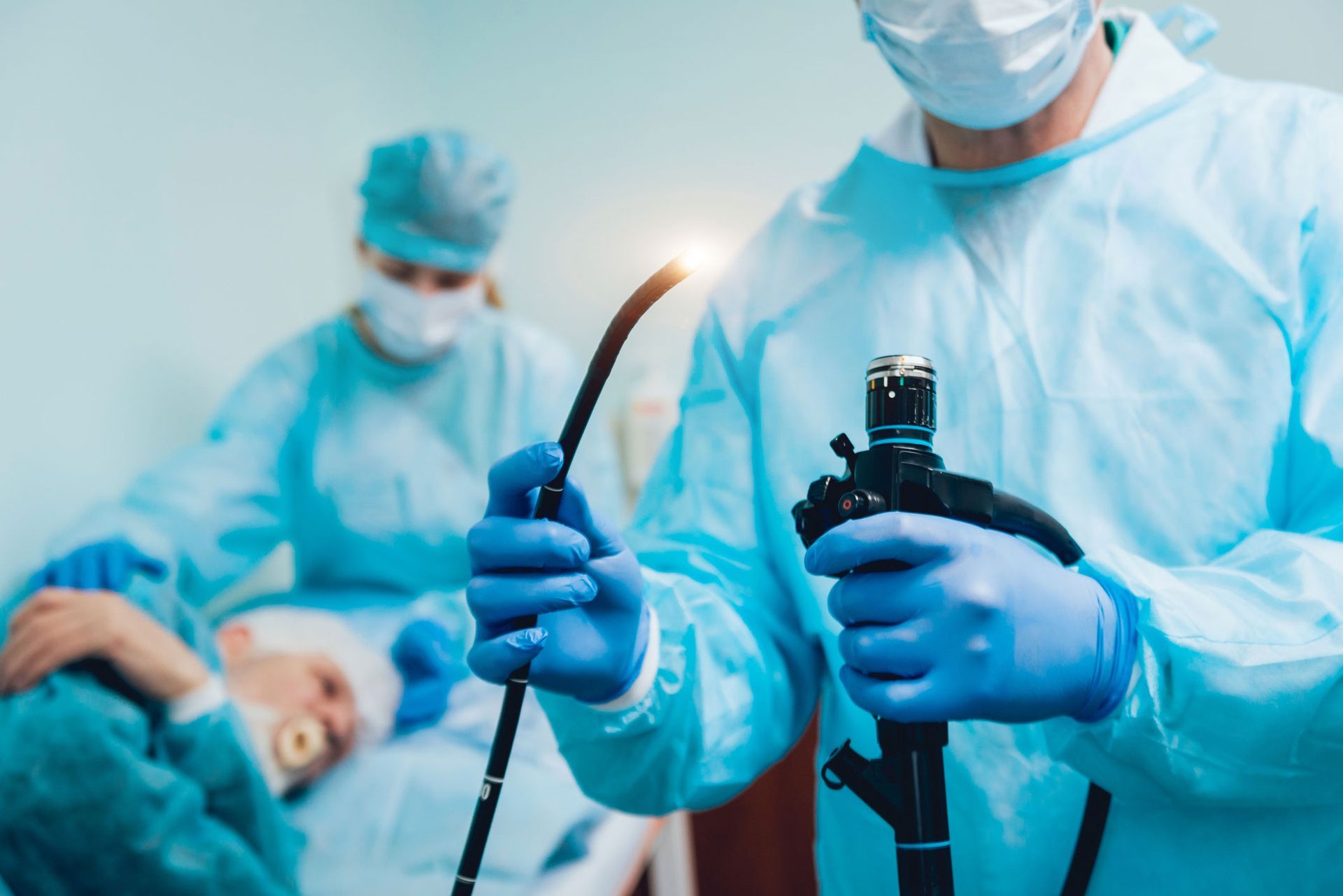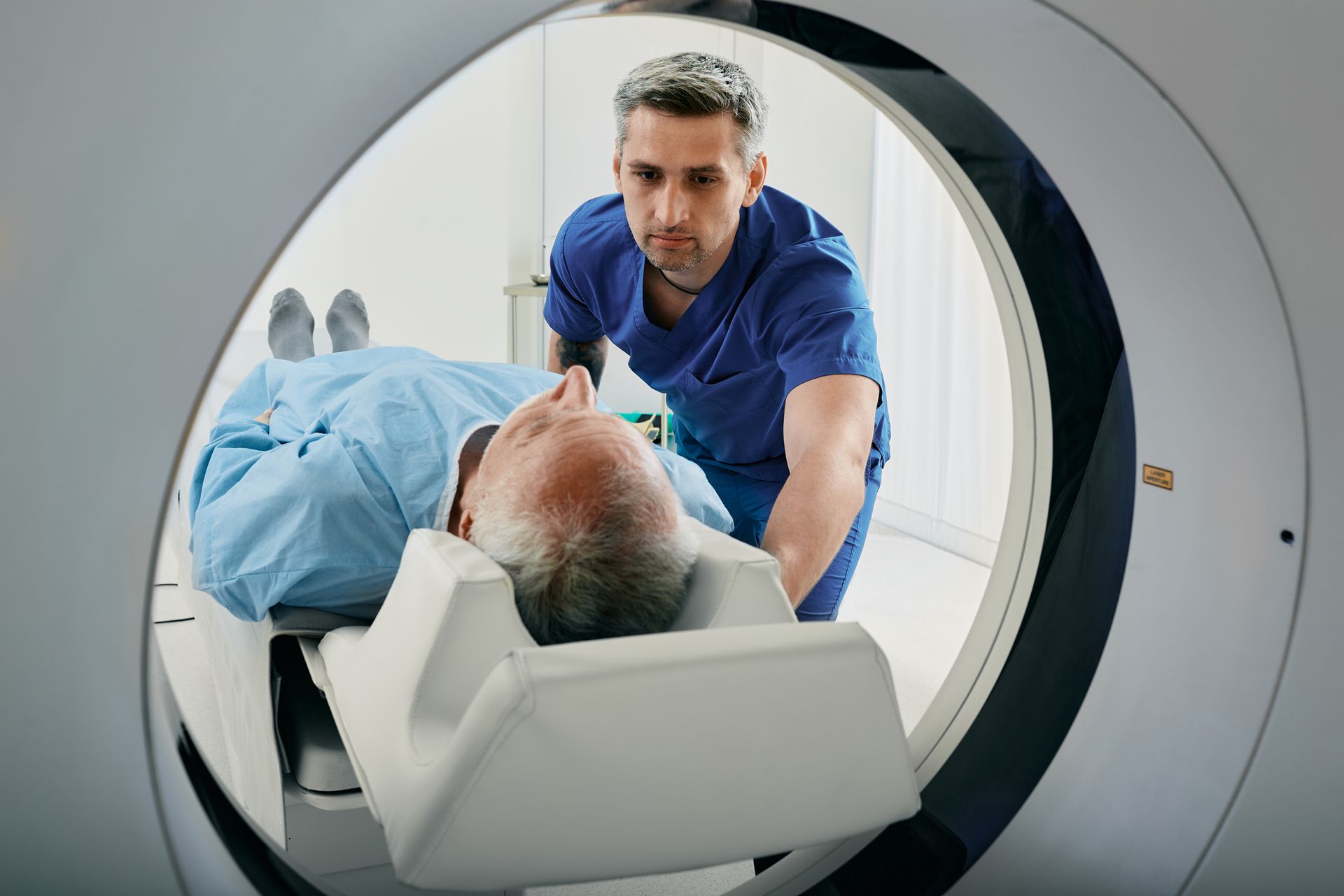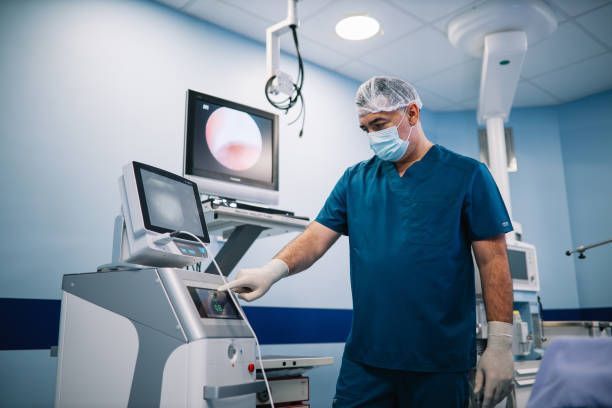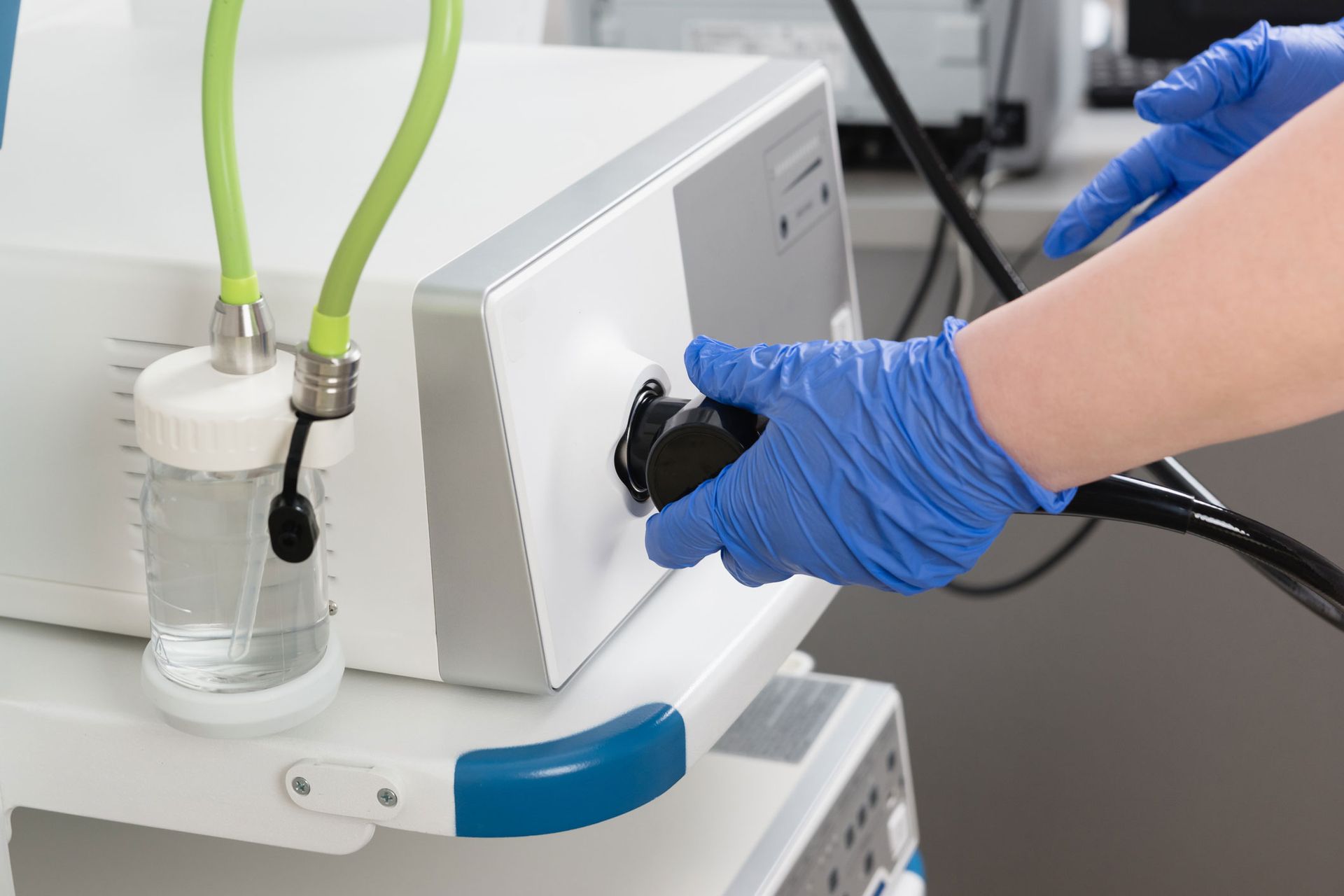Liver Biopsy
What is Liver Biopsy?
Liver biopsy is a procedure by which a tiny sample of liver tissue is removed through a needle and is evaluated microscopically for liver disease.
Why is Liver Biopsy necessary?
Liver biopsy is necessary to diagnose certain liver diseases. Evidence of these diseases may be seen by enlargement of the liver, jaundice, or elevated liver enzymes.

What preparation is necessary?
Do not eat or drink anything after midnight before the procedure. Some preliminary blood tests will be done to be certain that your blood clots normally. These tests will be done on the morning of the procedure, unless otherwise instructed.
What should I expect during the test?
Upon arrival to the hospital, you will be asked to give the admitting clerk some necessary information. Next, you will be taken to an exam room where a nurse will help you into a gown and complete a brief history and consent form.
A sonogram (ultrasound) of the liver will be obtained just prior to the biopsy. For the biopsy, you will be positioned flat with your right arm extended above your head and the hand resting comfortably under your head. A local medication, similar to that used by your dentist, will be used to numb the area where the needle will be inserted.
What happens after the test?
A bulky dressing will be applied to the site of the biopsy and you will need to lie on your right side for a prescribed amount of time. The liver biopsy is usually performed as an outpatient.
What are the possible complications of Liver Biopsy?
Complications associated with liver biopsy are extremely rare and measures are taken to prevent them. However, the two complications that would most likely be associated with liver biopsy are bleeding and infection.
The liver biopsy is an extremely worthwhile test. It is invaluable in the diagnosis and proper management of certain liver diseases. The decision to perform this procedure was based upon assessment of your particular problem.
If you have any further questions or concerns, your doctor and/or his staff will be happy to discuss them with you.
IMPORTANT REMINDER:
This information is intended only to provide general guidance. It does not provide definitive medical advice. It is very important that you consult your doctor about your specific condition.
